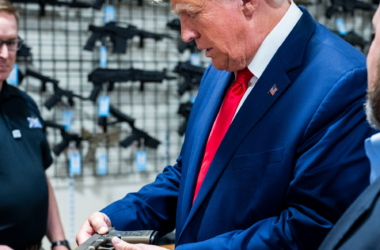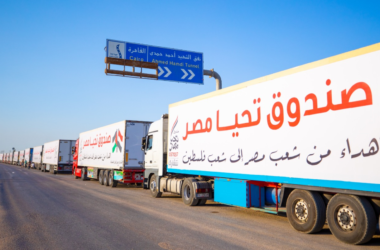The rise in migrant-related violence has had political repercussions. The right-wing Alternative for Germany (AfD) party has capitalized on public sentiment, making significant gains in recent elections. The AfD secured 16% of the vote in the recent European election, outpacing Chancellor Olaf Scholz’s Social Democratic Party, which garnered nearly 14%.
As Germany grapples with these complex issues, the government and law enforcement continue to seek effective strategies to ensure public safety while managing the challenges associated with immigration and asylum policies.
The most recent accident involves German police shooting and killing a 27-year-old Afghan national following a stabbing incident at a soccer event near Magdeburg, in eastern Germany. The incident occurred weeks after another deadly attack involving an Afghan migrant in Mannheim, underscoring the recent spate of violence involving asylum-seekers in the country.
On Friday evening, in Wolmirstedt, a town about 130 kilometers west of Berlin, the Afghan assailant fatally attacked a 23-year-old compatriot with a “knife-like object,” according to police reports. The victim succumbed to his injuries later.
Following the initial attack, the assailant targeted a group of people gathered to watch the televised opening game of the Euro 2024 soccer tournament. The gathering was taking place in the yard of a private house. During this attack, three German men were injured, two of them seriously.
The attacker then confronted the police officers responding to the scene, still armed with the weapon. In the ensuing confrontation, two officers shot the attacker, who was subsequently taken to a hospital where he died from his wounds.
The motives behind the attacks remain unclear. German authorities, including the police in Saxony-Anhalt state where the incident occurred, are investigating the circumstances but have not yet established any specific reasons for the attacker’s actions. This follows a pattern observed in similar recent incidents where the motivations of the assailants were not immediately apparent.
This event comes shortly after another violent episode involving an Afghan asylum-seeker in Mannheim. In that incident, a 25-year-old Afghan migrant fatally stabbed a German police officer during an anti-Islam rally, critically wounding writer and activist Michael Stürzenberger, who is known for his controversial views on Islam.
In response to the recent increase in violent incidents involving migrants, the German government is contemplating new measures to enhance public safety. Interior Minister Nancy Faeser has proposed the establishment of ‘knife-free zones’ in cities across Germany, including restrictions on carrying knives in public transport and other areas. This proposal is part of broader efforts to address rising concerns about crime, especially in light of the data released by the German Interior Ministry indicating a 5.5% increase in overall crime last year, with a notable 13.5% rise in crimes involving suspects of foreign backgrounds.
The recent stabbing incident near Magdeburg has added to the growing concern over migrant-related violence in Germany. With the government considering new safety measures and political parties leveraging the issue for electoral gains, the country faces ongoing debates about security, immigration policy, and social cohesion.








